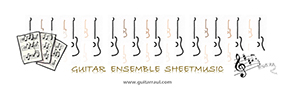Nuno Cristo
https://www.academia.edu/2205017
It is a general idea nowadays that the banjo came from Africa to the Americas during the Atlantic slave trade, but was it a material object that crossed the Middle Passage or just an idea of the banjo? If it was an object, where exactly did it originate in Africa? If it was an idea, what were the essential elements of that idea? The name banjo itself has also inspired some interesting and diverse theories that try to connect the instrument to Africa, to the sixteenth-century European maritime expansion and, of course, to the life of slaves in the American plantations. In this respect, I am aware of the use of the word “banza” in the Portuguese language referring to a string instrument, usually one of a low social status. In the context of the musical genre called fado the Portuguese guitar is referred to as banza. Its origins are most likely to be African from the Kimbundo language of Angola, in the Central West Coast of the continent facing the Atlantic. But what is the instrument we call banjo? In this essay I will be focusing on what is known as the American banjo and mostly the five-string type, the instrument that eventually evolved from a four-string gourd banjo in the Southern plantations of the United States sometime at the end of the eighteenth-century and early nineteenth-century, and later gained wide popularity thanks to the circus, minstrelsy and the medicine show traditions.
Tracking the Banjo: From Across the Water to the Stage and Up the Mountains





